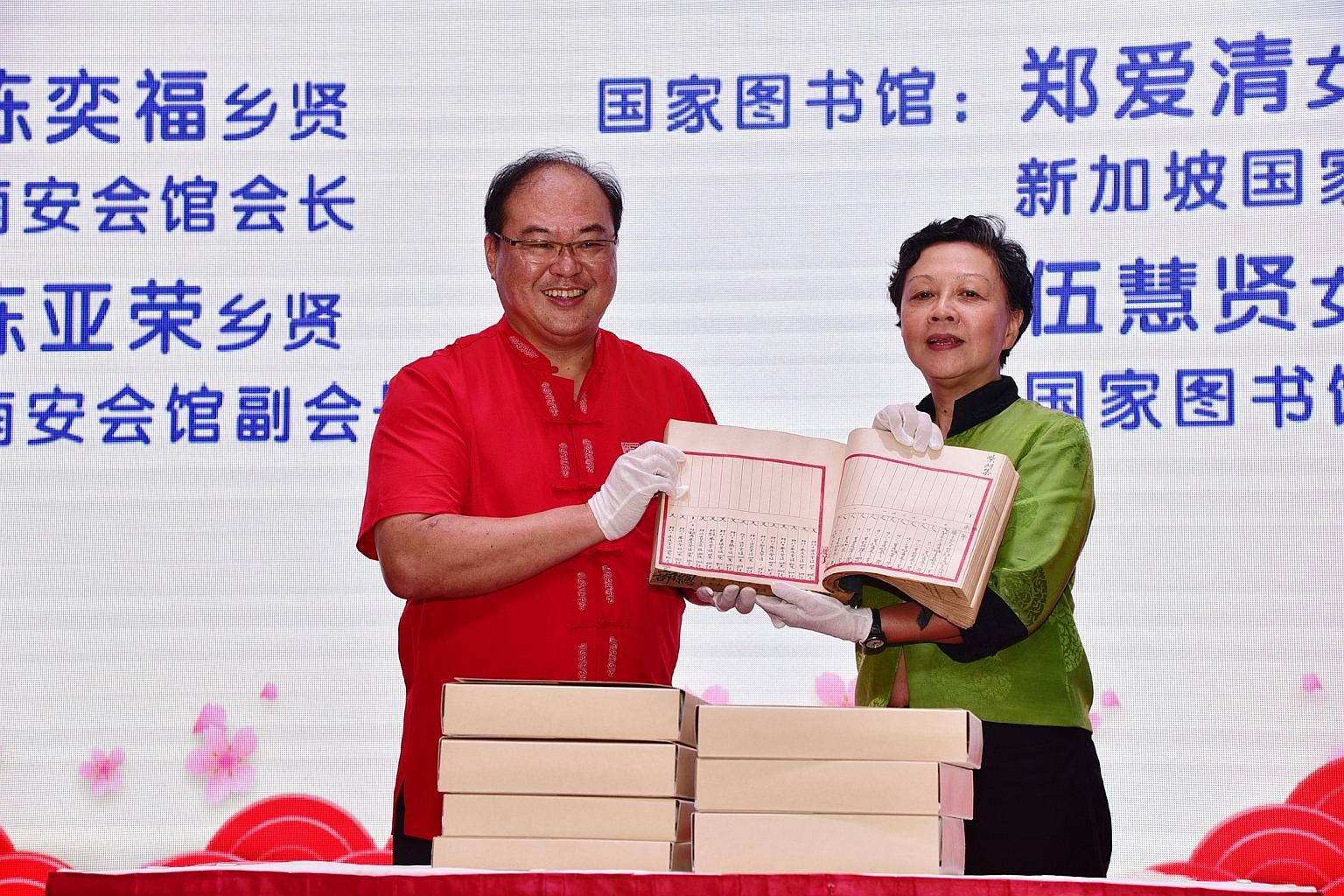Temple's rare historical records donated to NLB
Details of temple building give peek into construction sector in early years
Sign up now: Get ST's newsletters delivered to your inbox

Mr Tan Aik Hock, chairman of the Singapore Lam Ann Association, and National Library Board deputy chief executive Tay Ai Cheng holding one of the seven rare account books on Hong San See temple.
ST PHOTO: DESMOND WEE
To construct the Hong San See temple - now a national monument - bricks were ordered by the "trishaw-load".
Details of how the Hokkien temple was built, including the names of the craftsmen and cost of construction and building materials, feature in seven rare account books which have been donated to the National Library Board (NLB) by the Singapore Lam Ann Association.
The association has been managing the temple in Mohamed Sultan Road since 1924.
The NLB said the records are primary research materials and will help Singaporeans "understand the history of the temple, provide useful evidence on the history of the early building and construction sector in Singapore, as well as a snapshot of the living standards in early Singapore".
Researchers and members of the public can access the materials at the Lee Kong Chian Reference Library at 100, Victoria Street.
The place of worship is decorated with carvings and sculptures, including dancing dragon figures.
It was designed and built by Mr Lim Loh - a contractor and the father of World War II hero Lim Bo Seng - with construction taking place between 1908 and 1913.
The Singapore Lam Ann Association also donated marriage certificates that it used to issue. Dating from 1935 to 1960, the certificates reflect the role the association played in solemnising marriages within the community before the Registry of Marriages was set up in 1961, the NLB said.
The association's chairman, Mr Tan Aik Hock, 49, said most of the temple's and association's records were destroyed during World War II. The remaining ones are precious and best kept with NLB, he said.
"As a committee, we are happy that the items have landed in good hands," said Mr Tan.
"Instead of keeping the documents in our safe, we decided to donate them to the library so more people, including our own members, can have access to them.
He said NLB also has the expertise in treating old artefacts, which are prone to problems such as bug infestation.
Over the past two years, the NLB has received donations from five Chinese clan associations.
NLB director Wai Yin Pryke said it welcomes donations of materials on Singapore and South-east Asian history that will enrich the existing collection.
"We receive donations from many sources,including clan associations, organisations and individual collectors. We plan to engage more donors this year, with the Singapore Lam Ann Association being one of the first."
A selection of the Hong San See temple records will also be digitised and made accessible on the NLB's BookSG website http://eresources.nlb.gov.sg/printheritage/


